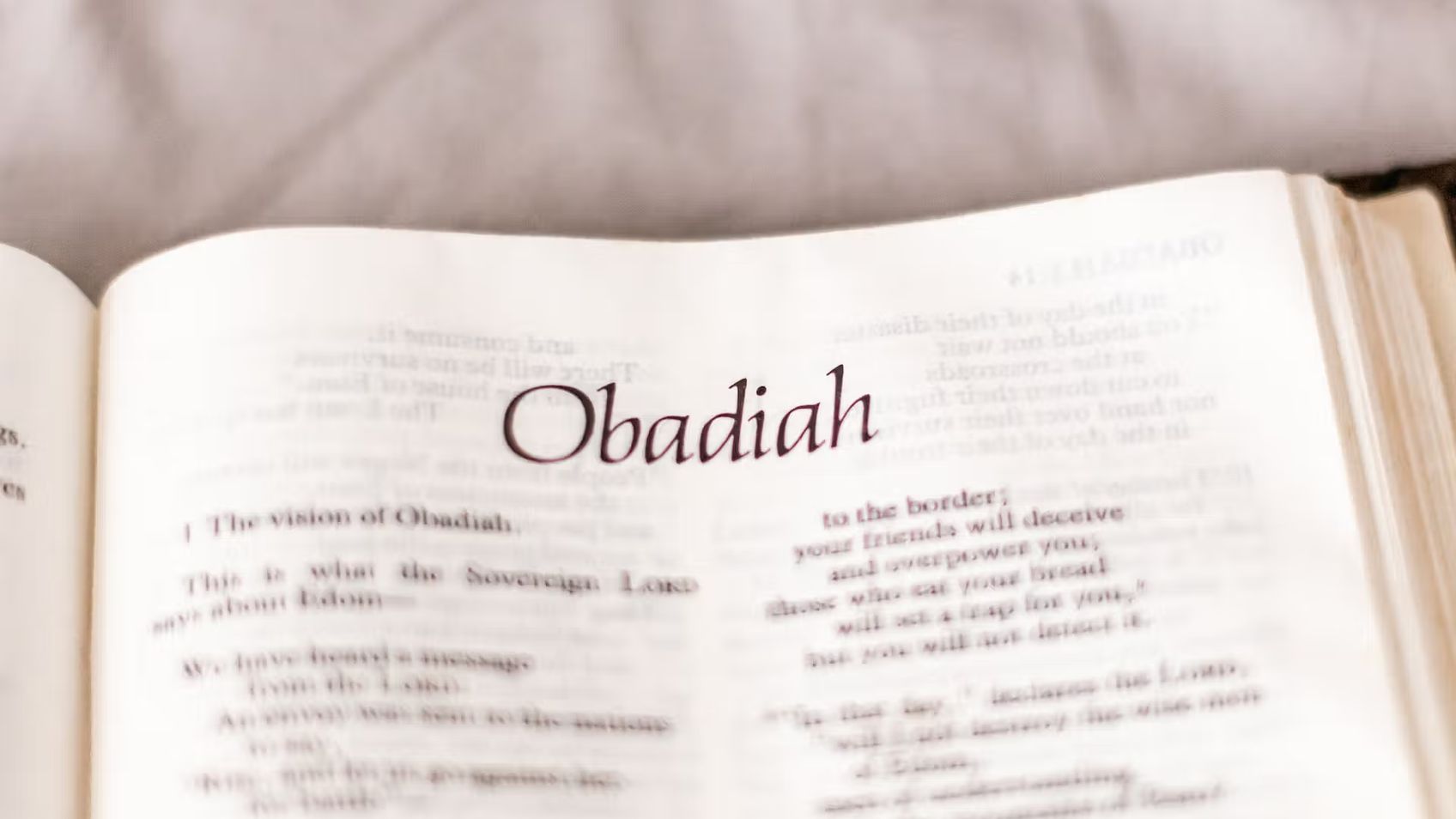Obadiah (Full Book)

ObadiahSteve Gregg
In this brief overview, Steve Gregg explores the book of Obadiah which focuses on the conflict between Israel and Edom, their neighbor to the east. Despite being initially subdued by Israel, the Edomites later looted Jerusalem and showed no pity towards the Jews during their time of calamity. Obadiah prophesied that the Edomites would face divine judgement and their hidden treasures would be sought after by other nations. Additionally, like other prophets, Obadiah also had something to say about the Messianic kingdom and its subjects.
Series by Steve Gregg

Joel
Steve Gregg provides a thought-provoking analysis of the book of Joel, exploring themes of judgment, restoration, and the role of the Holy Spirit.

Church History
Steve Gregg gives a comprehensive overview of church history from the time of the Apostles to the modern day, covering important figures, events, move

Joshua
Steve Gregg's 13-part series on the book of Joshua provides insightful analysis and application of key themes including spiritual warfare, obedience t

The Jewish Roots Movement
"The Jewish Roots Movement" by Steve Gregg is a six-part series that explores Paul's perspective on Torah observance, the distinction between Jewish a

Nahum
In the series "Nahum" by Steve Gregg, the speaker explores the divine judgment of God upon the wickedness of the city Nineveh during the Assyrian rule

Hosea
In Steve Gregg's 3-part series on Hosea, he explores the prophetic messages of restored Israel and the coming Messiah, emphasizing themes of repentanc

Jude
Steve Gregg provides a comprehensive analysis of the biblical book of Jude, exploring its themes of faith, perseverance, and the use of apocryphal lit

Isaiah
A thorough analysis of the book of Isaiah by Steve Gregg, covering various themes like prophecy, eschatology, and the servant songs, providing insight

Three Views of Hell
Steve Gregg discusses the three different views held by Christians about Hell: the traditional view, universalism, and annihilationism. He delves into

Creation and Evolution
In the series "Creation and Evolution" by Steve Gregg, the evidence against the theory of evolution is examined, questioning the scientific foundation
More on OpenTheo

Conservatism and Religious Freedom with John Wilsey
Life and Books and Everything
October 27, 2025
What is conservatism? And why does it go hand in hand with religious freedom? How should we think about the American experiment of ordered liberty? Ha

Sense, Sensibility, and Adam Smith with Jan Van Vliet
Life and Books and Everything
February 16, 2026
This year is a special anniversary for the United States as Americans celebrate 250 years of independence. But 1776 was an important year in more ways

How Can We Know Who Is Teaching the Same Gospel Paul Taught?
#STRask
February 16, 2026
Questions about how we can know who is teaching the same gospel Paul taught, and whether or not Jeremiah 1:5 supports the idea that we pre-existed in

What Is the Role of the Holy Spirit in Our Lives if He Doesn’t Give Us Instructions?
#STRask
February 23, 2026
Questions about the role of the Holy Spirit in our lives, advice for someone who believes in God intellectually but struggles to understand how to hav

Can You Recommend Good Books with More In-Depth Information and Ideas?
#STRask
January 22, 2026
Questions about good books on Christian apologetics, philosophy, and theology with more in-depth information and ideas, and resources to help an intel

E. Calvin Beisner: Climate and Energy Policy
Knight & Rose Show
January 4, 2026
Wintery Knight and Desert Rose welcome Dr. E. Calvin Beisner to discuss climate and energy policy. They explore Biblical dominion and stewardship, con

Are You Accursed If You Tithe?
#STRask
December 15, 2025
Questions about whether anyone who tithes is not a Christian and is accursed since Paul says that if you obey one part of the Mosaic Law you’re obliga

Lora Ries: Border Security and Immigration Policy
Knight & Rose Show
December 7, 2025
Wintery Knight and Desert Rose welcome Lora Ries to discuss border security and immigration policy. They explore Biden's policy changes, like ending R

Can You Provide Verifiable, Non-Religious Evidence That a Supernatural Jesus Existed?
#STRask
November 10, 2025
Question about providing verifiable, non-religious evidence that a supernatural Jesus existed.
* I am an atheist and militantly anti-god-belief. Ho

Did God Create Us So He Wouldn’t Be Alone?
#STRask
November 3, 2025
Questions about whether God created us so he wouldn’t be alone, what he had before us, and a comparison between the Muslim view of God and the Christi

Did Jesus Prove He Wasn’t Sinless When He Overturned the Tables?
#STRask
December 29, 2025
Questions about whether Jesus proved he wasn’t sinless when he overturned the tables, whether Jesus’ response to the Pharisees in Mark 3:22–26 was a b

Is 1 Corinthians 12:3 a Black-and-White Tool for Discernment?
#STRask
October 27, 2025
Questions about whether the claim in 1 Corinthians that “no one can say ‘Jesus is Lord’ except in the Holy Spirit” is a black-and-white tool for disce

What About Those Who Never Heard the Name of Jesus?
#STRask
December 22, 2025
Questions about what will happen to those who never heard of Jesus or were brought up in a different faith, whether there’s biblical warrant to think

Is It Possible There’s a Being That’s Greater Than God?
#STRask
February 5, 2026
Questions about whether it’s possible there’s a being that’s greater than God and that’s outside of God’s comprehension and omniscience, and how to ex

Does God Hear the Prayers of Non-Believers?
#STRask
February 26, 2026
Questions about whether or not God hears and answers the prayers of non-believers, and thoughts about a church sign that reads (as if from God), “Just
